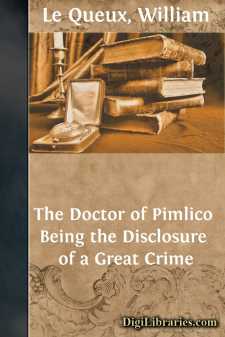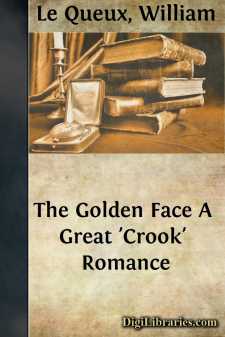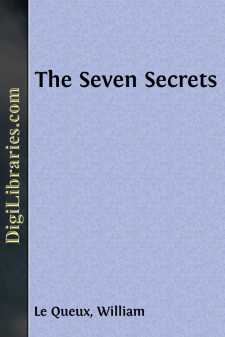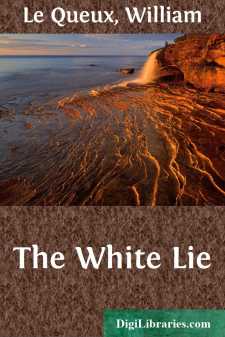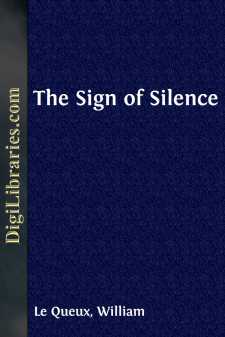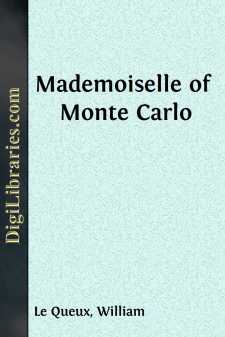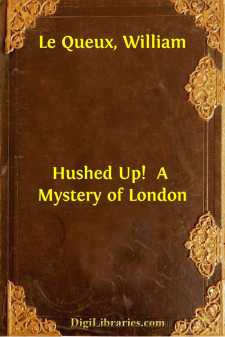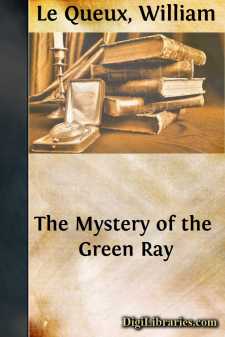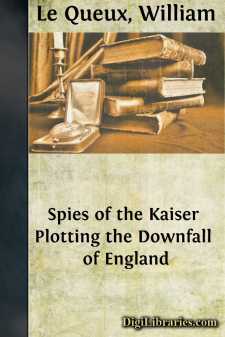Categories
- Antiques & Collectibles 13
- Architecture 36
- Art 48
- Bibles 22
- Biography & Autobiography 813
- Body, Mind & Spirit 142
- Business & Economics 28
- Children's Books 14
- Children's Fiction 11
- Computers 4
- Cooking 94
- Crafts & Hobbies 4
- Drama 346
- Education 46
- Family & Relationships 57
- Fiction 11829
- Games 19
- Gardening 17
- Health & Fitness 34
- History 1377
- House & Home 1
- Humor 147
- Juvenile Fiction 1873
- Juvenile Nonfiction 202
- Language Arts & Disciplines 88
- Law 16
- Literary Collections 686
- Literary Criticism 179
- Mathematics 13
- Medical 41
- Music 40
- Nature 179
- Non-Classifiable 1768
- Performing Arts 7
- Periodicals 1453
- Philosophy 64
- Photography 2
- Poetry 896
- Political Science 203
- Psychology 42
- Reference 154
- Religion 513
- Science 126
- Self-Help 84
- Social Science 81
- Sports & Recreation 34
- Study Aids 3
- Technology & Engineering 59
- Transportation 23
- Travel 463
- True Crime 29
The Doctor of Pimlico Being the Disclosure of a Great Crime
by: William Le Queux
Description:
Excerpt
CHAPTER I
IN WHICH CERTAIN SUSPICIONS ARE EXCITED
A grey, sunless morning on the Firth of Tay.
Across a wide, sandy waste stretching away to the misty sea at Budden, four men were walking. Two wore uniform—one an alert, grey-haired general, sharp and brusque in manner, with many war ribbons across his tunic; the other a tall, thin-faced staff captain, who wore the tartan of the Gordon Highlanders. With them were two civilians, both in rough shooting-jackets and breeches, one about forty-five, the other a few years his junior.
"Can you see them, Fellowes?" asked the general of the long-legged captain, scanning the distant horizon with those sharp grey eyes which had carried him safely through many campaigns.
"No, sir," replied the captain, who was carrying the other's mackintosh. "I fancy they must be farther over to the left, behind those low mounds yonder."
"Haven't brought their battery into position yet, I suppose," snapped the old officer, as he swung along with the two civilians beside him.
Fred Tredennick, the taller of the two civilians, walked with a gait decidedly military, for, indeed, he was a retired major, and as the general had made a tour of inspection of the camp prior to walking towards where the mountain battery was manœuvring, he had been chatting with him upon technical matters.
"I thought you'd like to see this mountain battery, Fetherston," exclaimed the general, addressing the other civilian. "We have lots of them on the Indian frontier, of course, and there were many of ours in Italy and Serbia."
"I'm delighted to come with you on this tour of inspection, General. As you know, I'm keenly interested in military affairs—and especially in the reorganisation of the Army after the war," replied Walter Fetherston, a dark, well-set-up man of forty, with a round, merry face and a pair of eyes which, behind their gold pince-nez, showed a good-humoured twinkle.
Of the four men, General Sir Hugh Elcombe and Walter Fetherston were, perhaps, equally distinguished. The former, as all the world knows, had had a brilliant career in Afghanistan, in Egypt, Burmah, Tirah, the Transvaal, and in France, and now held an appointment as inspector of artillery.
The latter was a man of entirely different stamp. As he spoke he gesticulated slightly, and no second glance was needed to realise that he was a thorough-going cosmopolitan.
By many years of life on the Continent he had acquired a half-foreign appearance. Indeed, a keen observer would probably have noticed that his clothes had been cut by a foreign tailor, and that his boots, long, narrow and rather square-toed, bore the stamp of the Italian boot-maker. When he made any humorous remark he had the habit of slightly closing the left eye in order to emphasise it, while he usually walked with his left hand behind his back, and was hardly ever seen without a cigarette. Those cigarettes were one of his idiosyncrasies. They were delicious, of a brand unobtainable by the public, and made from tobacco grown in one of the Balkan States. With them he had, both before the war and after, been constantly supplied by a certain European sovereign whose personal friend he was. They bore the royal crown and cipher, but even to his most intimate acquaintance Walter Fetherston had never betrayed the reason why he was the recipient of so many favours from the monarch in question.
Easy-going to a degree, full of open-hearted bonhomie, possessing an unruffled temper, and apparently without a single care in all the world, he seldom, if ever, spoke of himself. He never mentioned either his own doings or his friends'. He was essentially a mysterious man—a man of moods and of strong prejudices.
More than one person who had met him casually had hinted that his substantial income was derived from sources that would not bear investigation—that he was mixed up with certain financial adventurers....


